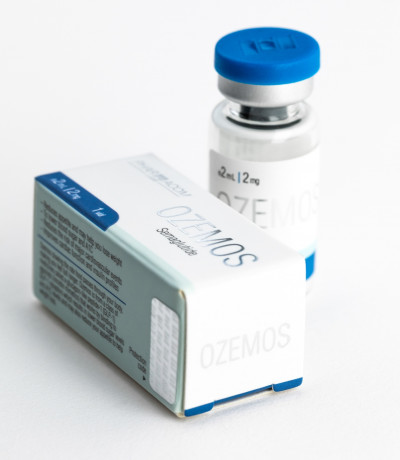


Glucagon-like peptide-1 (GLP-1) is a peptide hormone integral to glucose metabolism and energy balance, produced primarily by enteroendocrine L-cells in the intestine in response to nutrient intake. GLP-1 functions as an incretin, meaning it enhances insulin secretion in a glucose-dependent manner, an effect essential for regulating blood glucose. Beyond glucose metabolism, GLP-1 has broad physiological impacts, influencing appetite, inflammation, and cardiovascular health. Recent studies underscore GLP-1’s potential in addressing chronic inflammation—a component of diseases such as type 2 diabetes, obesity, and cardiovascular disorders. GLP-1’s effects are mediated through the GLP-1 receptor (GLP-1R), a G-protein-coupled receptor expressed widely in pancreatic beta cells, neurons, and cardiovascular tissues. Activation of GLP-1R leads to signaling cascades that increase intracellular cyclic AMP (cAMP) and calcium levels, resulting in insulin secretion, reduced glucagon release, and improved beta-cell health. GLP-1R agonists like exendin-4 and liraglutide activate similar pathways, and GLP-1 analogs are used clinically to enhance insulin secretion and promote satiety. Notably, GLP-1 has an anti-inflammatory effect in various tissues, reducing oxidative stress and cytokine production in endothelial and cardiac cells, which supports its use in metabolic and cardiovascular diseases. The discovery of GLP-1 traces back to the 1920s, evolving from the identification of glucagon, with subsequent studies revealing GLP-1 as part of the proglucagon sequence processed in intestinal L-cells and pancreatic alpha cells. Studies have shown that GLP-1’s effects extend to the cardiovascular system, where it protects against ischemia and reduces inflammation in vascular tissues, and in cardiac conditions such as heart failure. Inflammatory responses mediated by macrophages, cytokines, and oxidative stress can be mitigated by GLP-1 signaling, making it relevant for conditions like sepsis and chronic heart failure. GLP-1 and its analogs have also been explored for their neuroprotective effects. In animal models of Parkinson’s and Alzheimer’s diseases, GLP-1 analogs have shown promise in reducing neuroinflammation and oxidative stress. By binding to receptors in the central nervous system, GLP-1 decreases microglial activation and suppresses inflammatory cytokines, potentially slowing neurodegenerative processes. Alzheimer’s disease models show that GLP-1 analogs may improve memory and cognitive function by supporting long-term potentiation and reducing beta-amyloid plaque accumulation. The role of GLP-1 in hepatic and gastrointestinal health is also significant. Studies reveal GLP-1’s ability to improve liver function by reducing inflammation and fat accumulation, specifically in non-alcoholic fatty liver disease (NAFLD) and non-alcoholic steatohepatitis (NASH). GLP-1 decreases levels of C-reactive protein (CRP), a marker of inflammation, and improves liver histology in models of NASH. Inflammatory bowel diseases such as Crohn's disease and ulcerative colitis also benefit from GLP-1's immunomodulatory actions, which reduce cytokine levels and protect the gut lining. GLP-1’s presence in the gut enables it to support gastrointestinal healing and improve nutrient absorption. Dual GLP-1/GIP (glucose-dependent insulinotropic peptide) receptor agonists like tirzepatide offer expanded therapeutic options by enhancing the beneficial effects of GLP-1 while adding GIP’s effects on fat metabolism. These combinations promise greater glycemic control and weight management with additional cardiovascular and anti-inflammatory benefits.
Mehdi, S.F., Pusapati, S., Anwar, M.S., Lohana, D., Kumar, P., Nandula, S.A., Nawaz, F.K., Tracey, K., Yang, H., LeRoith, D., Brownstein, M.J. and Roth, J., 2023. Glucagon-like peptide-1: a multi-faceted anti-inflammatory agent. Frontiers in Immunology
Disclaimer: Information provided it this page is for general information only and does not substitute for professional medical advice.
For detailed information about Ozemos by Pharmacom Labs, consult with your doctor or healthcare professional.


Mehdi, S.F., Pusapati, S., Anwar, M.S., Lohana, D., Kumar, P., Nandula, S.A., Nawaz, F.K., Tracey, K., Yang, H., LeRoith, D., Brownstein, M.J. and Roth, J., 2023. Glucagon-like peptide-1: a multi-faceted anti-inflammatory agent. Frontiers in Immunology

Mehdi, S.F., Pusapati, S., Anwar, M.S., Lohana, D., Kumar, P., Nandula, S.A., Nawaz, F.K., Tracey, K., Yang, H., LeRoith, D., Brownstein, M.J. and Roth, J., 2023. Glucagon-like peptide-1: a multi-faceted anti-inflammatory agent. Frontiers in Immunology

Mehdi, S.F., Pusapati, S., Anwar, M.S., Lohana, D., Kumar, P., Nandula, S.A., Nawaz, F.K., Tracey, K., Yang, H., LeRoith, D., Brownstein, M.J. and Roth, J., 2023. Glucagon-like peptide-1: a multi-faceted anti-inflammatory agent. Frontiers in Immunology